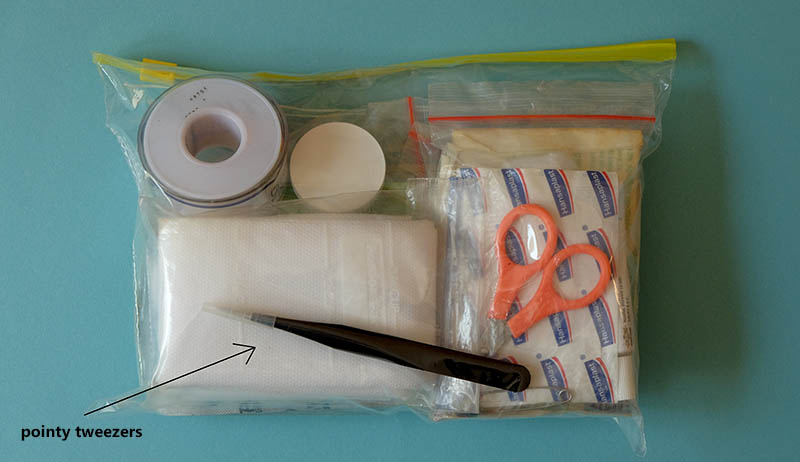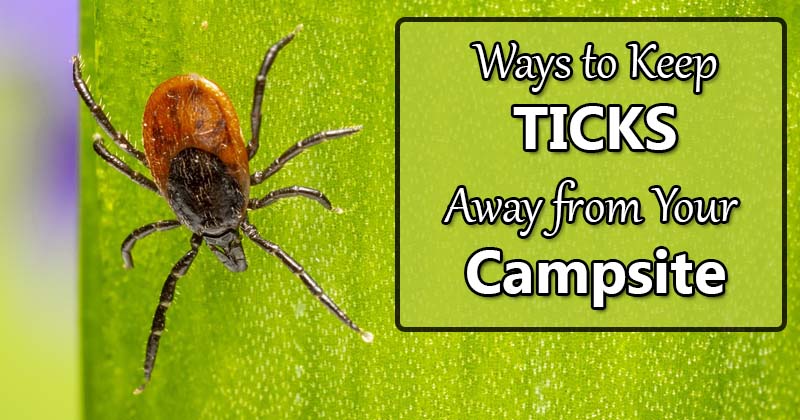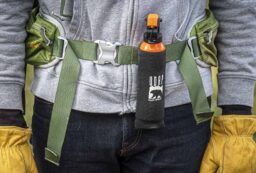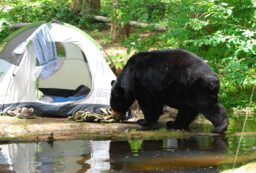Ticks love tall grasses, piles of leaves and thick brush. If your campsite has any of these, then it’s likely there are ticks lurking. Ticks can’t jump but they can get on you as you walk around camp. Well-groomed campsites probably don’t have many ticks. However, you can get ticks on you during hikes and bring the ticks back to the campsite with you.
While ticks are an inevitable part of camping in many regions, it doesn’t mean you can’t take steps to reduce your contact with ticks. Here is what you need to know about how ticks get onto your campsite and into your tent, and X smart things you can do to keep ticks away from your campsite.
1. Use the Right Tick Repellent
Natural remedies like essential oils for ticks don’t do a good job of keeping ticks away. Tick repellents like DEET or picardin which go on your skin work, but are not safe for young children and wear off quickly. For these reasons, the permethrin is considered the best tick repellent for camping.
Unlike other tick repellents, permethrin isn’t put on the skin. Rather, it is put on your clothes and shoes. A lot of campers also treat their tents and sleeping bags with permethrin. Ticks die on contact with permethrin so won’t be brought back to camp, even if you hike through tick-infested areas. Read more about how to use permethrin for ticks .
2. Choose a Campground which Sprays for Ticks
A lot of campgrounds now regularly spray for ticks. If you are going camping in an area which is high-risk for Lyme disease, it’s worth choosing one of these campgrounds. You’ll probably have to call the campground to get this information as it is rarely mentioned on websites.
3. Set up Camp in a Clear, Sunny Area
Ticks dry up easily so prefer shady, wet areas. While you might also prefer some shade over your tent, you’ll be able to avoid ticks better if you set up camp in a sunny area. They also like to hide in tall grass or piles of leaves, so pitching your tent on a clear area will prevent ticks.
4. Bring Chairs
Ticks might be lurking on the ground or logs that you sit on. Consider bringing camping chairs to reduce the likelihood that ticks can climb on you.
5. Don’t Take Shortcuts Around Camp
Stick to the well-groomed paths instead as these are less likely to have ticks lurking on them. It’s bad camping etiquette to take shortcuts anyway.
6. Buy Firewood Instead of Gathering It
Ticks can easily get on you while you gather wood for your campfire. Consider buying firewood instead. It’s also better for the environment and required in certain campgrounds.
7. Keep Clothing Tucked In
One of the best natural ways to prevent ticks is to keep your clothes tucked in. The ticks will have fewer places to climb on to you. Tucking in also means it takes longer for the ticks to reach skin and bite you.
8. Bag Up Dirty Clothing
You can easily bring ticks into the tent from your clothing. To keep ticks from getting into the tent, don’t change your clothes inside the tent. Put dirty clothes inside a sealed plastic bag so any ticks on the clothing are trapped. Once you get home, wash and dry the clothing. Any clothes that you will wear multiple times when camping (such as hiking pants or jackets) should be treated with permethrin.
9. Treat Dogs Before Your Camping Trip
Your dog probably won’t be as diligent as you about avoiding places that ticks like. The ticks from your dog can easily get on you or end up in the tent. To keep your dog and yourself safe, treat your dog with a tick repellent before your camping trip. You’ll also want to make sure you have your doggie first aid kit stocked so you can deal with any bites.
10. Check for Ticks Often
No matter how careful you are, you can’t completely keep ticks out of your campground. Do a thorough check for ticks at least twice per day when camping. I usually do the check when getting dressed in the morning and again in the evening before it gets too dark. I’ve also gotten into the habit of checking for ticks on obvious places (ankles, armpits, hips) each time I take a break during a hike. Often, I’m able to spot the ticks before they’ve had time to bite. If one has latched on, I’ve always got a tick tool with me so I can remove it safely.

I keep these pointy tweezers in my camping first aid kit so I can safely remove ticks without the head breaking off.
What other ways can you prevent ticks when camping? Let us know in the comments section below.













Post your comments